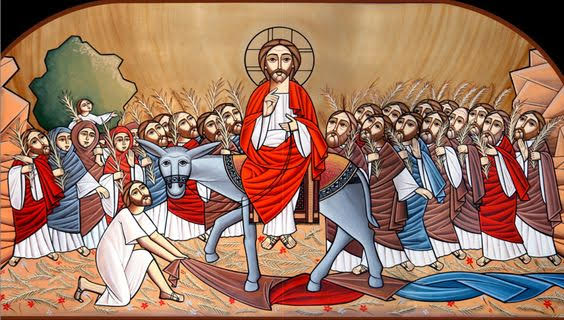In a meeting that took place on 25 September between Pope Tawadros II and Egypt’s Minister of Health and Population Khaled Abdel-Ghaffar, at the Papal Headquarters in Abbasiya, Cairo, a number of topics pertaining to health and medical services came under discussion. Major among them was the development and upgrading of the Coptic Hospital in Cairo.
Attending the meeting were Anwar Ismail, Assistant Minister of Health and Population for National Projects; Sherif Wadih, Advisor to the Minister of Health for Urgent and Critical Care; Father Kyrillos, the Pope’s Office Manager; and Barbara Soliman, Director of the Papal Office for Projects and Relations.

Cairo’s Coptic Hospital
The Coptic Hospital in Cairo was established in 1920, by a group of Coptic doctors who met together on a regular basis for fellowship and discussion. This group included al-Minyawi Pasha, Naguib Pasha Mahfouz, Guirguis Pasha Antoun and many others who were among the first group of Egyptian medical doctors in Egypt. Until the early 20th century, the only doctors in Egypt were foreigners. The group of Coptic doctors set up the charity al-Gamieya al-Khairiya al-Qibtiya (literally The Coptic Charity) which went on to establish the Coptic Hospital on what is today Ramses Street, one of the main thoroughfares in Cairo close to the city centre.

The hospital was officially opened in 1926 in presence of the Coptic Orthodox Patriarch Kyrillos V. It became famous for its top-level medical and health services provided to all Egyptians by excellent doctors and nursing staff.
In the 1960s, the Coptic Hospital was nationalised and run by the Ministry of Health. Sadly, its medical services deteriorated, and the hospital lost its singular reputation. It retained, however, its name as the “Coptic Hospital”, and the Coptic Church continued to offer services in the church housed inside the hospital.
Another Coptic hospital was built in Alexandria in 1953.
Singular architectural style
During their recent meeting, Pope Tawadros and Health Minister Dr Abdel-Ghaffar discussed cooperation between the Ministry of Health and the Coptic Church regarding development of the Coptic Hospital in Cairo. Dr Abdel-Ghaffar went over the Ministry’s proposal to develop the Coptic Hospital in order for it to match international standards for modern hospitals. Dr Abdel-Ghaffar stressed that any development of the building would be done while respecting its singular architectural style. The two sides agreed to form an architectural and construction team of members from the Ministry and the Church to coordinate the work and its schedule. Both parties confirmed the importance of swiftly completing the works for the hospital to serve its patients.
100 million healths, 100 days
Pope Tawadros and Dr Abdel-Ghaffar also discussed existing and future cooperation between the Church and the Ministry in providing health care and medical services to the public. These include services provided through hospitals built by the Coptic Church in many places in Egypt, and through the Church’s participation in the presidential initiatives campaigns “100 Millions Healths” [meaning 100 million healthy lives] and “100 Healthy Days”. It was agreed to expand Health Ministry medical convoys dispatched to churches and monasteries across the country according to need.
The 100 Million Healths campaign was launched by President Sisi in 2018; it started with a comprehensive survey and treatment of Egyptians from hepatitis C virus. It later expanded and included the most prevalent maladies that hit Egyptians including Diabetes and Hypertension. The campaign has achieved stunning success, not least being the near eradication of hepatitis C virus which had been prevalent in Egypt. Now the initiative is expanding to cover African countries.
The success of 100 Million Healths spurred another initiative: the 100 Healthy Days. Launched in June 2023, the campaign sought to improve, along a 100 day-span, the country’s healthcare system by providing free medical services to Egypt’s residents. The services offered include early detection of diseases such as cancerous tumours, genetic disorders for newborns, hepatitis C, and kidney failure. Services also include eye, teeth, and heart check-ups, testing for chronic diseases for men and women, hearing impairment for newborns, testing for obesity and anaemia in children.

Fruitful
The Minister of Health thanked Pope Tawadros for his “fruitful and continuous cooperation and his unrelenting support for the State’s efforts in various fields, as well as his faithful attitude of promoting love and humane values in the community.”
For his part, the Pope praised the efforts made by Dr Abdel-Ghaffar in projects aimed at supporting and developing health and medical services provided to all, stressing the importance of cooperation between the papal headquarters and the Ministry of Health in the project to develop and upgrade the Coptic Hospital in Cairo.
For coverage on the Coptic Hospital in Cairo:
“If you give not of yourself, you have given nothing”.. Naguib Mikhail Mahfouz (1882 – 1974)
Watani International
27 September 2023















